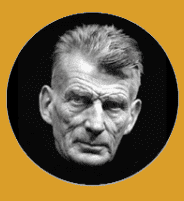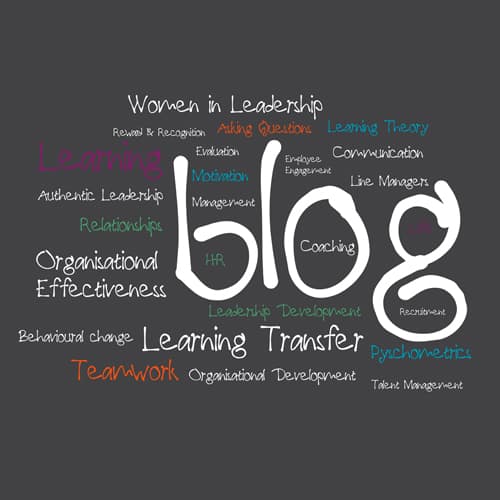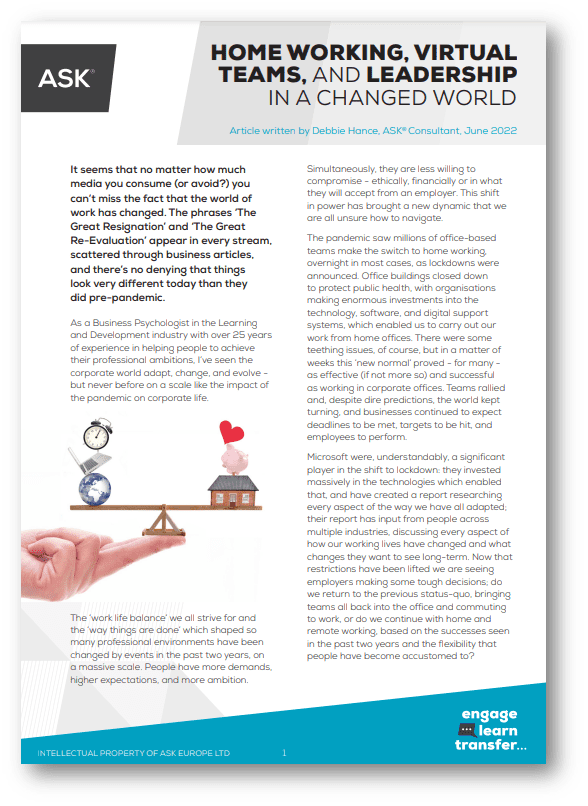Emotional agility and the learning paradox
Viktor Frankl
an Austrian neurologist and psychologist, in his most seminal work, ‘Man’s Search For Meaning’ originally published in 1946, wrote:

A Holocaust survivor, Frankl spent over 3 years in various Nazi concentration camps, including Auschwitz, where he sadly lost his parents, brother and wife to the regime.
This experience could have broken him – but Frankl used his experience to drive his research, developing Logotherapy, a form of existential analysis and therapy which saw him become a renowned source of inspiration for generations of humanistic psychology; Frankl said that the concentration camps provided him with an incredible insight into what keeps us going, even through the darkest and most brutal of times.
The work and research Frankl produced became pioneering in what we now understand and refer to as emotional agility.
Emotional agility is the process that allows you to be in the moment, changing or maintaining your behaviours so that you can live in ways that align with your intentions and values.
The futurist Patrick Dixon asks in his book, ‘The Future of Almost Everything’, what one thing has driven all of human history, and will determine the direction of humankind for the next 10,000 years.
Patrick Dixon's answer...
If you wish to explore the future, we need to look at how people are likely to FEEL as well as what they will THINK. The single word that will drive the future is EMOTION. We know that human emotions are physiological reactions that enable a behavioural response.
In other words, our emotions are an information system that comes from the body, which informs our brain to determine our resulting behaviour. At any time, all human behaviour is determined by our emotional state. This means that the physicality of the brain and our hormonal responses are impacted by, and impact, our emotional state.
The hypothalamus ensures an equilibrium in our bodies called homeostasis. This enables our neuroendocrine system to provide us with the relevant hormones to deal with the challenges of everyday life.
When we are in a negative emotional state we are in a catabolic state or a state of breakdown. In this state, our physiology produces the hormone cortisol to deal with stress and anxiety. This is fine if the emotional state is fleeting and temporary but, when it persists, the constant production of cortisol takes resources from our immune system.
The longer we stay in a negative emotional state, the more likely we are to be susceptible to illness – which is why sickness and absenteeism are more prevalent in industries where stress and pressure are high.
Conversely, when we are in a positive emotional state, we are in an anabolic state – or a state of build-up. In this state, our physiology produces the hormone DHEA, which produces testosterone in men and oestrogen in women. This enables us to perform, imagine and be creative.
If our emotional state has such a direct and measurable effect on our performance, this must be factored in to how we teach, learn and perform.
A positive emotional state is conducive to great performance because it enables our ability to think, be creative, grow and develop.
A negative emotional state pushes us into survival mode, which inhibits our ability to think and perform.
Emotional agility is the ability to prevent yourself from getting into that negative state and the ability to recognise when you are in a negative state and guide yourself from it back to a positive emotional state.
The world is changing – and doing so at an exponential and inexorable rate – it’s getting faster, and it can’t be stopped.
Technological growth is resulting in a similarly exponential change when we look at the tools and environments utilised in the workplace. However, this technological growth is also enabling disruption in every industry and sector. The new kids on the block are changing traditional product delivery channels, and they are offering it cheaper and quicker.
Change may be exponential, but human adaptability is linear, which means we’ve got a problem. How can we stay aligned to exponential change when, as humans, we can only adapt in a linear way?
Which brings us to ask the question – what is it that the disruptors are doing better than the established industries they are overtaking?
They are simply learning better – and they are learning to learn better
They understand the difference between growth and fixed mindset and understand the learning behaviours required to keep up with exponential change.
The majority of the world’s education systems are still based on the European 18th-century principles of compliance, uniformity, standardisation, and accreditation.
Our education system is still operated on the principle of exclusivity. We remain part of it until you fail, and then we are excluded. It is entirely based on a fixed mindset, not a growth one. From the age of 5 to 16 we are forced to sit down, be still and look forward.
As babies, could we have learned to walk by being forced to sit down and watch PowerPoint slides and videos of how other babies walk? Of course not! We learn how to walk by trial and error. We learn through constantly failing and repeating, retrying, getting back up.
Children who have done well in current education systems are those who have been compliant with those systems. They have sat still, not disrupted class, and passed the tests set for them. But suddenly we are asking for a different way to learn in the workplace. We now want our employees to ‘fail fast and fail low’. We want them to embrace the philosophy of the Irish playwright and poet Samuel Beckett’s twelve words:
Ever tried, Ever failed, No matter, Try again, Fail again, Fail better -
Samuel Beckett

In the workplace, we are finding ourselves in an environment of exponential change and this is creating a volatile, uncertain, complex, and ambiguous (VUCA) world; a world where traditional industries are being picked off by disrupters who are more agile and more creative than the competition they are replacing.
This dynamic is creating a learning paradox. The greater the pressure this VUCA world is creating, the harder and longer we find ourselves working just to survive.
This pushes our physiology into survival mode – and into a negative emotional state – to which we react by working longer, working harder – thus extending our time in this negative emotional state, further increasing the gap. It’s a vicious circle which is stunting our development and ability to perform on every level.
It means that we aren’t able to make time to learn new knowledge, skills, and behaviours, to change our approach and reframe our perspectives, and to work smarter.
The challenge for leaders now is this: how do you create the environment in your organisations which empowers a culture of learning when you are under greater pressure than ever to survive? How do we ensure that, as an established organisation, we can think and act like those disruptors?
The greater the embedded tradition and culture of learning in an organisation, the harder it is to change the attitude and behaviour to learning. Organisations need to learn how to learn all over again, and leaders need to create an environment that is creative and allows ideation.
Many organisations in the world today recognise that this ability to adapt will be the difference between survival or failure.
To learn how ASK can help you with this process of adaption, with re-learning how to learn, how to overcome the pressures of a negative mindset, and increase emotional agility throughout your organisation, let’s put our heads together to improve your tomorrow.
Call the team on 01234 757575 or email hello@askeurope.com to take the first step.



